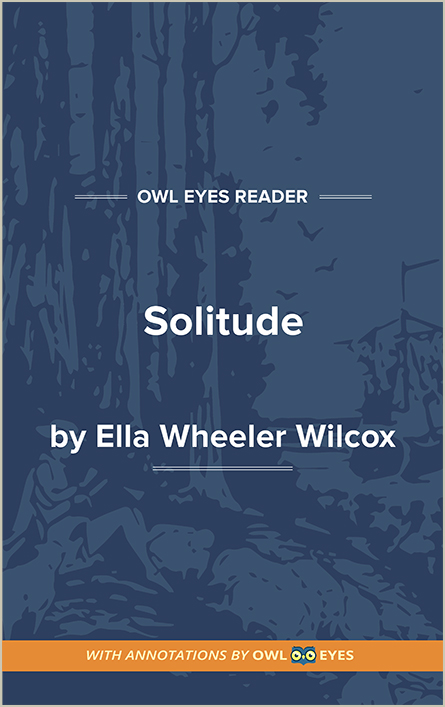Analysis Pages
Vocabulary in Solitude
Vocabulary Examples in Solitude:
Text of the Poem
🔒"Fast..." See in text (Text of the Poem)
"drink life's gall..." See in text (Text of the Poem)
"nectar'd wine..." See in text (Text of the Poem)
"do not need your woe..." See in text (Text of the Poem)
"Rejoice..." See in text (Text of the Poem)
"care..." See in text (Text of the Poem)
"mirth..." See in text (Text of the Poem)
"alone..." See in text (Text of the Poem)

